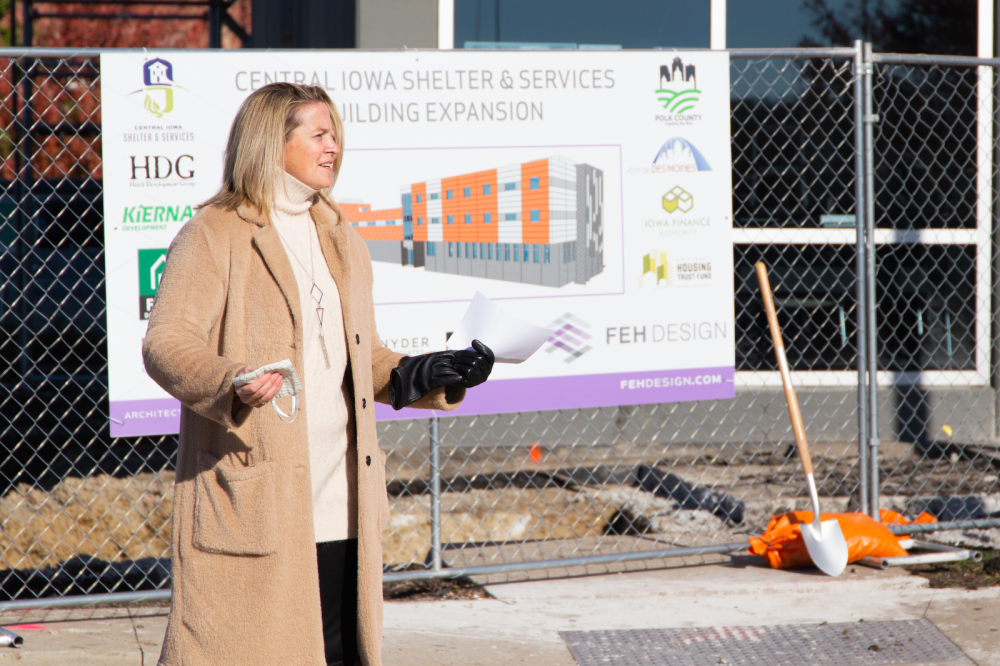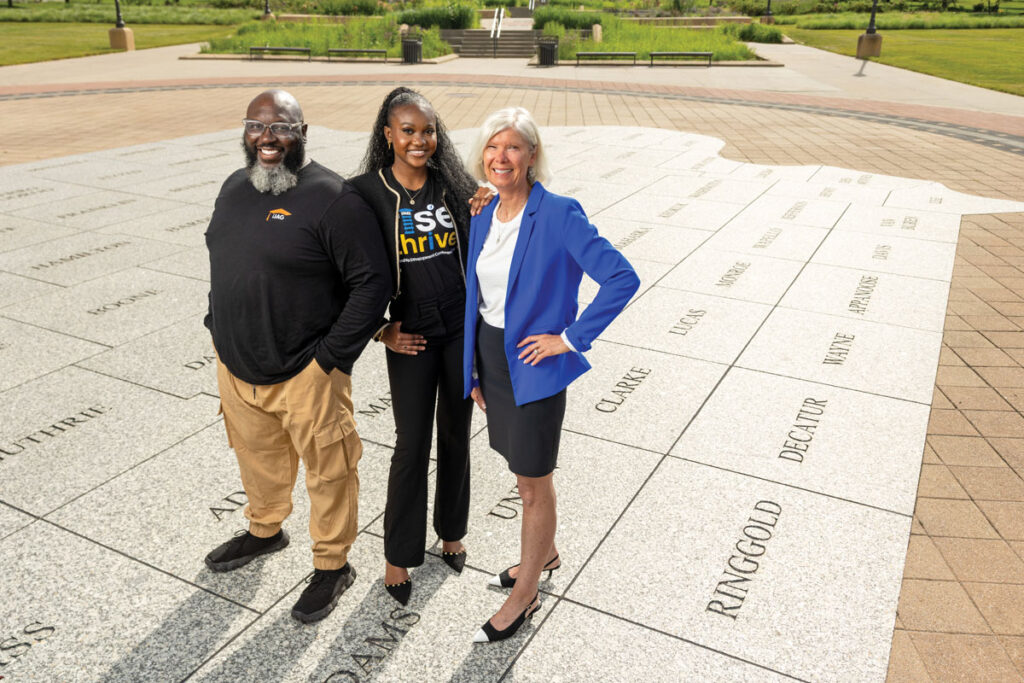Central Iowa Shelter & Services breaks ground on new apartments in expansion plan; agrihood coming soon

KATE HAYDEN Oct 28, 2020 | 4:30 pm
2 min read time
565 wordsAll Latest News, Arts and Culture, Real Estate and DevelopmentCentral Iowa Shelter & Services CEO Melissa O’Neil addresses the invitation-only audience for a groundbreaking on Tuesday morning of the Mulberry Street shelter’s expansion. Photo contributed
At the Central Iowa Shelter & Services on Tuesday, CISS CEO Melissa O’Neil addressed an invitation-only audience gathered outside to watch the groundbreaking of new apartments for the agency’s clients.
“Take a second and let the cold set in,” O’Neil said in the brisk air. “We have Iowans today, during this pandemic, who are sleeping outside, who are sleeping in their cars, and who are faced with the battle of bitter cold.”
The new expansion represents a visible commitment to “be better” for the residents of Des Moines, O’Neil said.
The $4.9 million expansion to the CISS shelter on Mulberry Street will add 24 studio apartments to individual adults experiencing long-term or chronic homelessness. CISS received funding through the National Housing Trust Fund ($2.7 million), Federal Home Loan Bank ($1 million), city of Des Moines ($400,000), Polk County ($400,000), Polk County Housing Trust Fund ($250,000) and Jack Hatch and Sonja Roberts ($200,000).
CISS currently offers 150 emergency beds; 38 Section 8 voucher apartments; 14 Safe Haven apartments; and five residential apartments reserved for veterans. CISS is in the planning process to develop Haven House, which would provide between 24 to 48 more apartments for individuals struggling to overcome addiction.
“We started [Haven House] officially last night, and our board will formally review the plans in November,” O’Neil said on Tuesday.
It turns out, the railroad tracks just south of the CISS building presented some challenges for advocates who had to abide by a U.S. Department of Housing and Urban Development noise level ordinance needed to comply with funding requirements.
“I secretly hope a train goes by today, because if you ever had to overcome barriers like a noise ordinance, it is a struggle,” O’Neil joked.
The expansion for CISS is just one piece of a 10-month feasibility study for the Mulberry Street Corridor, led by Shift Collective. When everything else shut down during the COVID-19 pandemic, that work kept going, O’Neil told the Business Record.
“Our neighborhood, our small businesses and big businesses, state, county, city, and all three hospital CEOs took part. It was really a voice of what our community wants,” O’Neil said. “The corridor is really about conversation, it’s about collaboration and it’s about pulling our community together when all of 2020 seems to have had so much distrust in our society. We really want to provide a place that we can come together and bridge gaps, and bridge conversations.”
Those conversations helped shape the CISS expansion project and an upcoming ‘agrihood’ located behind the CISS shelter. Taking the place of the existing geodesic dome, the project, which has an initial funding of $50,000 by the Schoen family, will feature an aquaponic system to grow tilapia and eight varieties of lettuce.
“Everything in that four acres that is planted must be edible — peaches, pears, green peppers, tomatoes, cucumbers, you name it, and it’s free to everybody,” O’Neil said. “Our job trainees who live here [will] cultivate the ground and make all this possible. Anybody that’s hungry can come get it. All the food goes into our community kitchen program, and then any excess gets sold to small businesses, local restaurants and local grocery stores. That’s groundbreaking number two, and that will happen very soon.”








